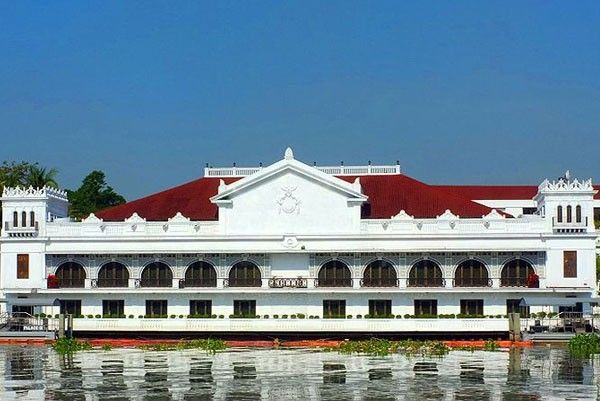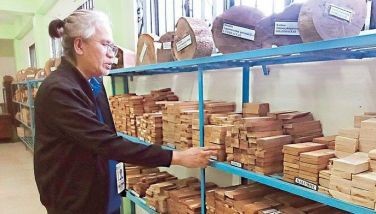Palace bans Rappler reporter from entire complex

MANILA, Philippines — Malacañang on Wednesday told Rappler's reporter that she had been barred from entering the whole presidential complex and not just the Palace.
Journalist Pia Ranada was barred on Tuesday to cover President Rodrigo Duterte following the chief executive's supposed loss of trust on her and her news outfit over their alleged publication of so-called "fake news."
When asked to confirm if Ranada was indeed banned from the whole presidential complex, presidential spokesperson Harry Roque told Philstar.com, "I believe so."
In a radio interview on Tuesday morning, Roque said that Duterte got "irritated" with Ranada, whom the chief executive supposedly treated as his own granddaughter, and with Rapple. This led him to impose the ban, Roque said.
Executive Secretary Salvador Medialdea explained that the president was reluctant to order the prohibition but had no choice but to implement a shutdown order of the Securities and Exchange Commission.
This is the latest setback to hit Rappler, an online news organization which has been critical in its coverage of the president, his men and their polices.
Just weeks ago, the Securities and Exchange Commission, the government's corporate regulator, gave Rappler the shutdown order over its apparent encroachment on the constitutional prohibition on foreign ownership.
Rappler has denied committing any wrongdoing and is currently challenging the SEC directive before a court.
In a statement on Wednesday afternoon, Roque said that the decision of the president stemmed from the uncertain status of the organization as a Filipino corporation and its alleged propensity to publish spurious information.
"Let us be clear: The case of Rappler is not an attack on press freedom. Ms. Ranada's accreditation, which would give her access to Palace activities, lies on Rappler's accreditation," said Roque.
The spokesperson cited the Philippine Daily Inquirer as a news agency allowed to cover the president despite its critical reportage on his administration.
Roque said that Rappler could have escaped from this "predicament" by securing a temporary restraining order or by becoming a Filipino firm.
"We gave Rappler sufficient opportunity to rectify the infraction of ownership rules or obtain judicial relief, but instead of doing so it spent time and resources to foment false news and opted to twist the facts like it often does," Roque said.
Rappler has been one of the most critical media outfits under Duterte, often publishing stories that put the president, his men and his policies especially his drug war under intense scrutiny.
Recently, Rappler received presidential ire after it and the Inquirer published a story that said that Special Assistant to the President Christopher "Bong" Go was interfering in a Navy frigate project to favor a South Korean firm.
The National Union of Journalists of the Philippines criticized the president and said that he was a "petulant child" and "extremely petty" for ordering the prohibition.
Human Rights Watch meanwhile slammed Duterte for his decision and said that his directive signaled a renewed assault on the Philippine press.
Related video:
- Latest
- Trending






























